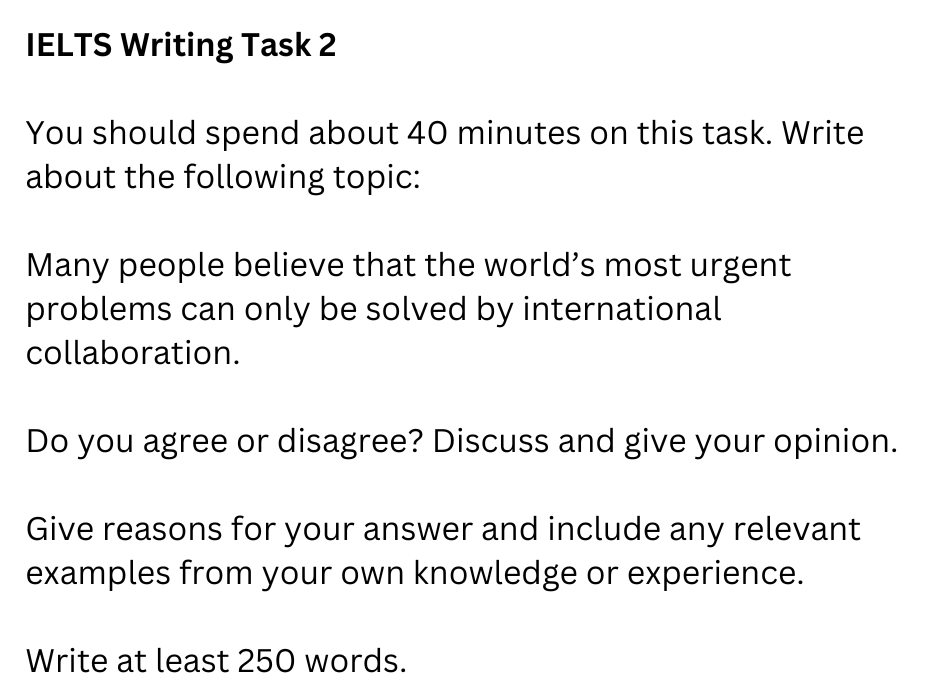Some of the most urgent problems in the world have not yet been solved. Is international collaboration the answer?
IELTS Writing Samples
 IELTS Writing Task 2 Key terms: most, urgent, problems, solved, international, collaboration, global, world, extent, agree, disagree, today,
IELTS Writing Task 2 Key terms: most, urgent, problems, solved, international, collaboration, global, world, extent, agree, disagree, today, Geopolitical Points to Consider
Writing for IELTS Task 2 - Essay Answer
As the global population faces many challenges which will require innovative solutions to combat them and cater to its needs, there are certainly some common problems that are best tackled on an international basis with inter-country collaboration. However, not all problems identified require a globally applied solution. Some problems are best confronted by taking local or national circumstances into account, in order to be relevant and effective in producing the desired results.
On one hand, at an international level, a problem such as climate change and reducing pollution lends itself to being tackled through international collaboration by organizations such as the United Nations. Mainly because many of the factors associated with this particular problem are common to many developing countries across the globe, such as transport pollution, industrial pollution, energy conservation, and recycling materials. Many solutions can be suggested that can be used irrespective of the country in which they are to be implemented.
On the other hand, a problem such as obesity, which is common in many developed countries but not a problem in many other countries, is possibly best confronted by regional, national, or local initiatives in order to combat it based on the cultural and social circumstances found in each particular area. For example, the diet and eating habits are somewhat different in the USA compared to in central Europe and the UK, although obesity has become a common problem in these areas. The best solution will no doubt be one that takes into account the idiosyncrasies and socio-cultural issues which affect each population and neighboring countries.
While some globally designed solutions may transfer easily to all countries and cultures, it is not always the case due to social, cultural, and environmental differences which naturally exist. It is therefore critical that any solution takes into account the factors which are present locally in order to be effective in terms of implementation and the results which can be expected, whether international global cooperation is involved or not.
How would you answer this essay question about how to resolve urgent problems in the world?
Follow up comments